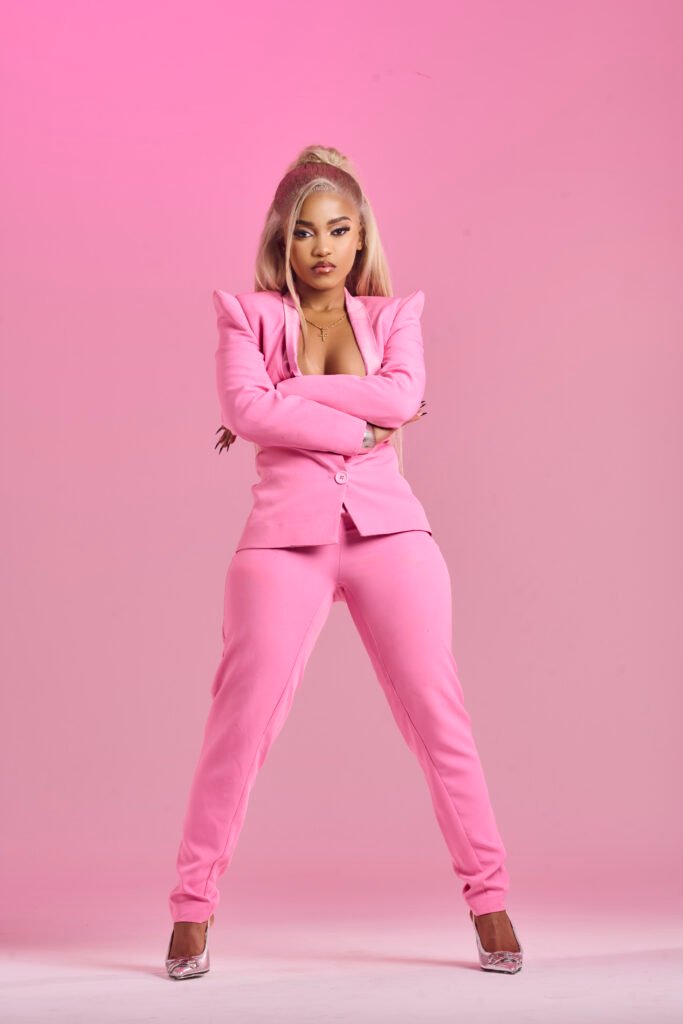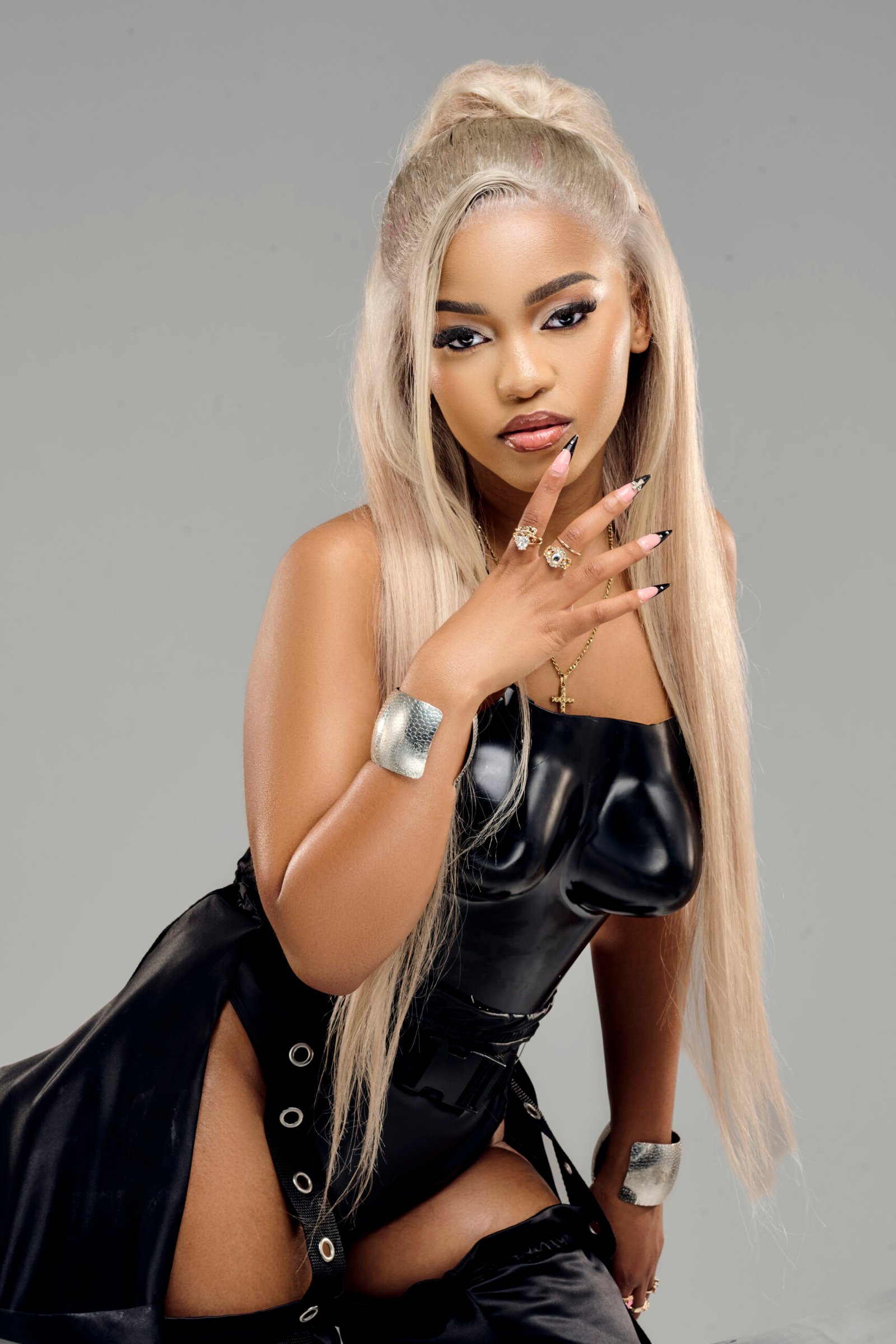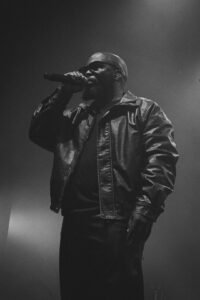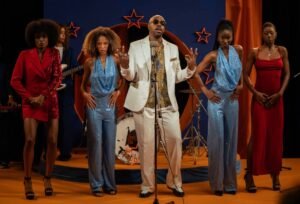“Dreams come true.”
It’s the kind of quote that belongs on vision boards, Instagram captions, or stitched onto throw pillows in pastel font. But in Zee Nxumalo’s case, it’s her biography in three words.
The last time I saw Zee Nxumalo, she was lighting up the 263 Culture Fest stage in Harare, Zimbabwe. The crowd—a mix of Shona and Ndebele speakers sang every isiZulu lyric of her chart-topping hit with the kind of religious fervor usually reserved for national anthems. That moment confirmed what her fans already knew and solidified her status as an international superstar. And when we finally caught up again, this time over a call, her bubbly, animated energy practically burst through the phone.
“I still can’t believe how the crowd knew every word,” she laughed, still buzzing from the memory. “It’s surreal.”
Surreal is one way to describe Zee’s journey, from a high school rapper in Johannesburg to one of the biggest voices in Amapiano and a bonafide ambassador for PUMA. The brand she used to dream about as a teen now proudly has her on speed dial. “Puma was the brand for me,” she says. “When they made me a brand ambassador it was like a tick on the box of my dreams.”
Over the years she refined her sound with her early musical foundations being in Hip-Hop. “When I first started out as a rapper, I sounded like Nasty C’s little cousin,” she jokes. “It was very clear I was a byproduct of the artists I admired. But over time, I started sounding like me. That was the biggest win.”
Now she has a signature voice that has powered a string of platinum-certified hits like “Ngisakuthanda,” a song so catchy it’s been reborn via TikTok and now boasts nearly 20 million views on YouTube. Not bad for a song she originally didn’t think would blow up. “I didn’t believe in it at first,” she confesses. “Had I known it would go that far, I would’ve shot a better music video! But now we’re turning that story into a short film.”It’s fitting that Zee’s fame sprouted on TikTok, where she built a cult following long before she became a fixture on Apple Music and Metro FM charts. “TikTok was like my sandbox,” she explains. “I got to experiment, build community, and honestly, it was my shield. When I dropped music, I didn’t have to beg for attention, it was already there.”
“I got to experiment, build community, and honestly, it was my shield. When I dropped music, I didn’t have to beg for attention, it was already there.”
Zee Nxumalo
That sense of community runs deep. Fans don’t just love Zee, they idolize her. Teenagers cry when they meet her. Grownups travel miles just for a selfie. “It still surprises me,” she says. “But I get it. I used to be that fan too. You know, the one who’d cry over a two-second eye contact from my idol.” Her fan-first mentality explains why she makes it a point to acknowledge everyone from backstage crew to teenage dreamers with shaky phone cameras. “I remember how it felt to be invisible. I don’t want anyone around me to feel that way.”
She takes pride in her roots and carries them wherever she goes. Zee was born in Eswatini, but Johannesburg raised her. “I used to think the peak was being a South African superstar,” she says. “But the second time I performed in Zimbabwe, I realized… wait, I could be a continental superstar. Why not?” That mindset shift cracked open her Pan-African ambition. She’s already collaborating with a Nigerian artist whose song is dominating TikTok, and she’s got her eye on Rema next.
When asked about her studio routine, Zee shrugs. “I don’t write. I freestyle everything. I have to feel comfortable, like I’m alone in the studio. That’s when the magic happens. Even ‘AmaGear’ those lyrics barely make sense, but the emotion? It’s real.” She believes in “perfect mistakes,” in catching lightning in a bottle when the vibe is just right. “Pressure kills creativity,” she says. “I have to let the song feel like something, not just say something.”

“Train your mindset. That’s everything."
Zee Nxumalo
With her breakout project Inja Ye Game and headline performances at events like Rocking the Daisies and the Soweto Derby halftime show, Zee’s résumé reads like a bucket list. Her grit has elevated her to the biggest stages on the continent. “I used to have a very toxic relationship with money,” she admits. “Growing up in the hood, you’re taught to save every cent because success doesn’t last. I saved out of fear, not wisdom.” Now she’s learning to invest in herself, emotionally, financially, and creatively.
So, what would Zee say to a young girl dreaming from the back of a crowded classroom in Soweto? “Train your mindset. That’s everything. People will see more in you than you see in yourself, and that’s heartbreaking. Your mind can either sabotage your help or you become your best. Choose wisely.”
When she’s not remixing Amapiano or shaking stages, Zee’s with her family, granny, cousins, aunts, and all. “It’s my healing space,” she says. “It’s love in its purest form.”
Zee Nxumalo didn’t wait for permission to become who she is. She imagined a better world, stepped into it and then danced like it already belonged to her.
And honestly? It does.






